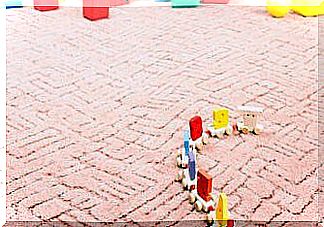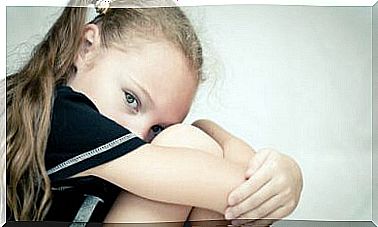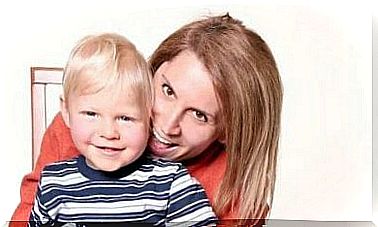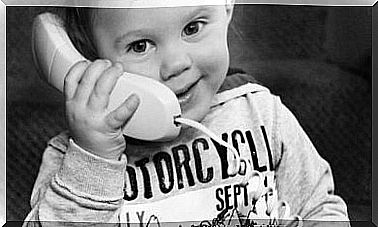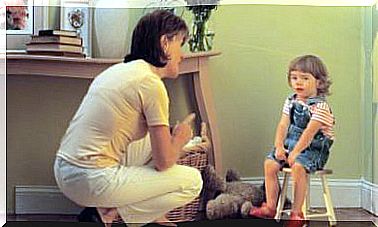Restless Or Hyperactive Children?

Restless or hyperactive children? Certainly, if your child is pure energy and doesn’t sit still, you’ve already asked yourself this question and, in fact, this is something that worries many parents, especially when the child enters school and complaints start to arise from the teacher that the your child doesn’t sit still.
More and more children are labeled from an early age as “hyperactive”, although at these ages it is very difficult to make a diagnosis that allows labeling the child for the rest of their life. We must be very careful with this. Some of these kids may be hyperactive, but most of them are simply kids with a lot of energy and a need for movement.
Restless or hyperactive children at school
On many occasions, parents observe that their children, from an early age, cannot be quiet. They are dynamic children who like to investigate and discover things, and spend little time sitting.
When the child enters school, the first thing the teacher says is: “You have a very restless child, maybe he has ADHD (Attention Deficit Hyperactivity Disorder). I’ll ask the advisor to check.”
But is it already possible to say that a 3-year-old child who has just entered the first year of Kindergarten is hyperactive? It shouldn’t and doesn’t have to be. Many experts claim that the diagnosis of ADHD should not be made until the 2nd year of elementary school (around 7 to 8 years old), when it is possible to start the assessment.

If from a very early age we put the label of hyperactive in children, this will become something that they will drag throughout their formation phase, leaving marks on their self-esteem and their way of being in a negative way. And maybe she’s just a child with a need to experiment, touch, move, etc.
Each child is different from the other
Children who need movement, who don’t stop, have always existed and always will, and they don’t necessarily have a hyperactivity problem. Nowadays, the first thing you do is put a label to start medication right away.
Each child is different and, at first, we only worry when the behavior becomes problematic. There are children who have difficulty relating but who do not put down their books, and other children who have learning difficulties but do not bother in class.
In either case, it is clear that there are emotional problems, but these children are not labeled in the same way as a child who cannot sit still. This happens for the simple fact that such characteristics can bother the teacher in the classroom. On many occasions, children who still do not have a reliable diagnosis are medicated so that they can behave better in the classroom.
Restless or hyperactive children: solutions
Next, we will propose some solutions for considering our children’s behavior and way of being before labeling them as hyperactive.
Attention to diversity at school
Not all children are the same, and that doesn’t mean they have a problem. Based on this consideration, it is necessary to verify the child’s need to touch, move, experiment with their hands so that, in this way, we can understand their difficulties in sitting for long periods. Furthermore, if there is attention to diversity at school, this must be taken into account.
drug therapy
From a physiological point of view, the child is given medication to control this hyperactivity, but sometimes we do it without ADHD really being present. You have to be careful and wait for an assessment when it needs to be done.
Importance of psychological care
More and more families and educators ask that this problem be addressed taking into account that it may have a psychological origin to be treated. Some causes can be:
- Lack of stimuli at an early age to facilitate the bond between children and parents.
- Excessive artificial stimuli, such as television, cell phone, video game, tablet, etc.

Healthy eating
Many nutritionists indicate that excess refined sugars and chemical additives can cause excitability in children.
meet needs
We have to take into account the nature of each child, their needs and desires and, without a doubt, we must establish limits and rules, but without exaggerating rigidity.
At home, we can work with the child in activities related to touch : touching water, clay, painting, etc., and establish a place where he can release this energy to move, jump, run.
Facilitate the expression of emotions
We should let the child express their emotions and tell us how they feel, in addition to providing caresses and massages.
About restless or hyperactive children
So, as you can see, this is a touchy subject. There are children diagnosed and medicated who are not children with hyperactivity disorder. Furthermore, early labeling is not child-friendly either.
The parents should prevent their children are diagnosed before age 7 or 8 years, since it would still not be possible to make a complete evaluation. In younger children, excessive movement can still be caused by lack of cognitive maturation.
